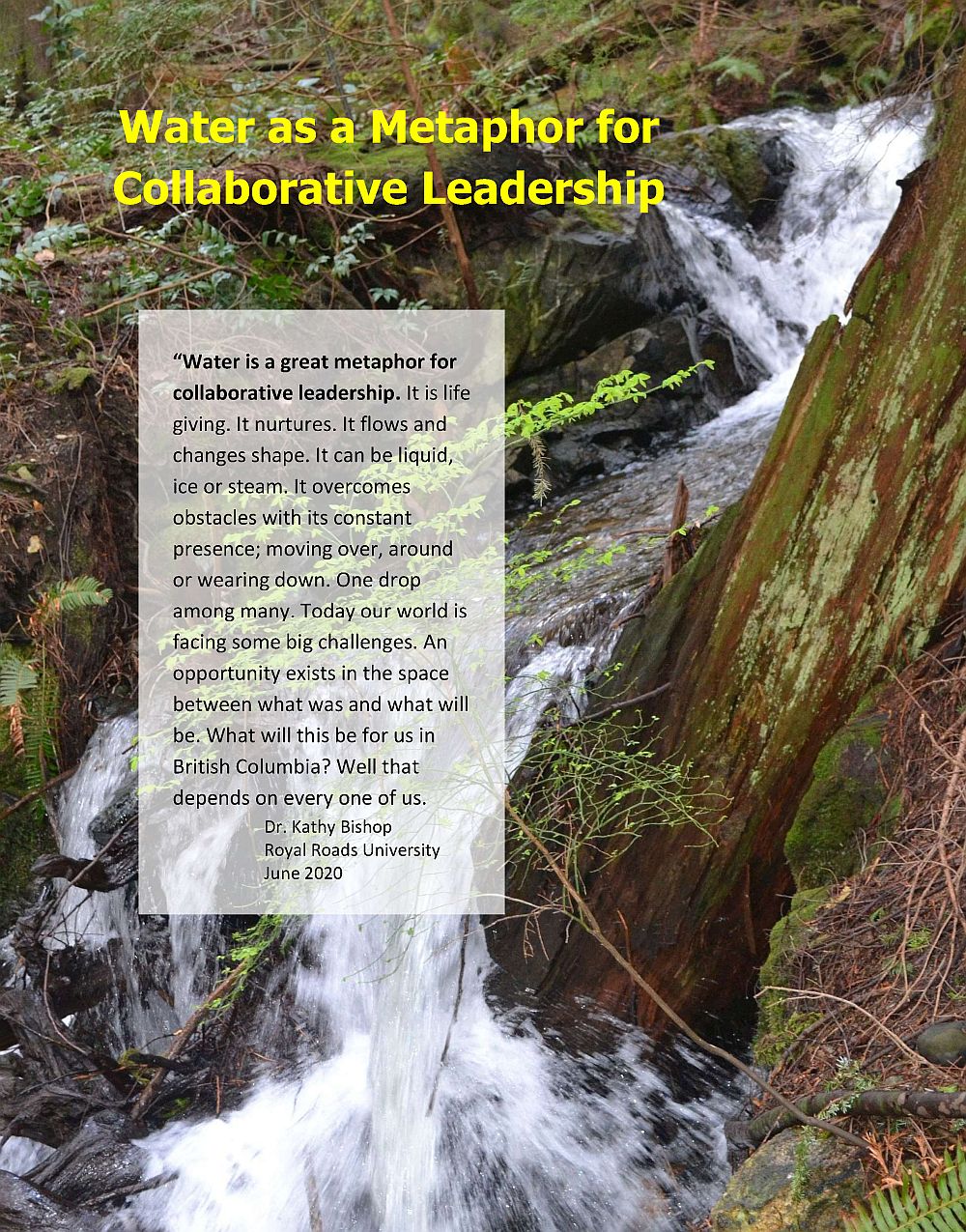Know Your History and Context to Offset Generational Amnesia
Note to Reader:
“SHARE INFORMATION. INFORM DECISIONS.” This soundbite lines up nicely with the mission of Waterbucket eNews which is to help our readers make sense of a complicated world. Waterbucket eNews celebrates the leadership of individuals and organizations who are guided by the vision for Living Water Smart in British Columbia to build greener communities and adapt to a changing climate; and embrace “design with nature” approaches to reconnect people, land, fish, and water in altered landscapes. The edition published on November 9 2021 featured Dan Pauly’s Shifting Baselines Syndrome.
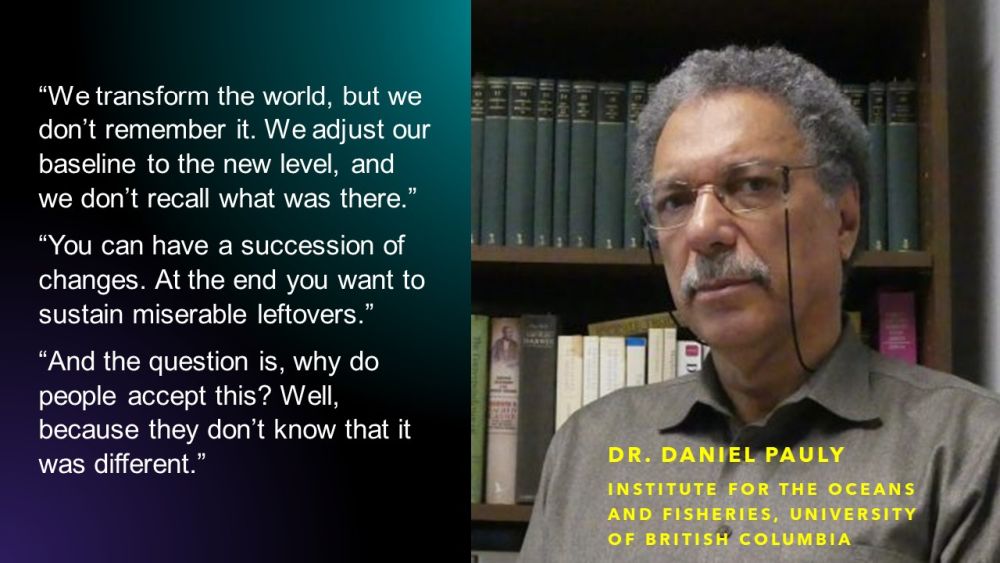
EDITOR’S PERSPECTIVE on Know Your History and Context to Offset Generational Amnesia
“In September, Greystone Books published The Ocean’s Whistleblower. It is the first authorized biography of Daniel Pauly, a truly remarkable man. Daniel Pauly is a living legend in the world of marine biology. He is also a man whose life has been shaped by struggle. And he lives in British Columbia,” stated Kim Stephens, Waterbucket eNews Editor and Executive Director, Partnership for Water Sustainability in British Columbia.
“Because of his profound influence on the guiding philosophy for the Partnership for Water Sustainability, featuring Daniel Pauly in this edition of Waterbucket eNews was a no-brainer. Among his many contributions is the Shifting Baseline Syndrome. This is a foundational concept. And it goes to the heart of the vision for intergenerational collaboration.”
“To know where you are going, you need to know where you have come from. Otherwise, as Daniel Pauly observed in 1995 when he published it, baselines shift when successive generations of practitioners do not have an image in their minds of the recent past. Know your history. Know your context. These are keys to overcoming generational and organizational amnesia.”
“When the Partnership delivered a National Rainwater Management Workshop Series in 2014, referencing the Shifting Baseline Syndrome helped us explain to our audiences (in Calgary, Toronto, Ottawa, Montreal and Halifax) why we think differently in British Columbia. Because we do! How we think in this province is shaped by our topography and geography.”
“When we travelled across the continent, we realized just how crucial the stewardship ethic is in British Columbia. Yet, British Columbians as a whole may only be a generation or two away from becoming disconnected from nature. This means we are in a race against time to inspire an intergenerational collaboration ethic in the local government setting. This is the intergenerational mission of the Partnership.”
“As Daniel Pauly said during his TED Talk in 2010, we can recreate the past. Seeing examples of what the past looked like enables people to re-set their baseline, he stated. In BC, a learn-by-doing process is opening minds and building confidence that we can re-set the baseline. For the champions in many regions, the journey to date is decades-long. It is hard work. Yet there is hope. And that is why Waterbucket eNews celebrates and showcases those who are beacons of inspiration.”

Generational Amnesia: The Memory Loss that Harms the Planet
|

ACKNOWLEDGMENT: This graphic is from Daniel Pauly’s TED Talk in 2010 when he told the story behind The Shifting Baseline. https://www.youtube.com/watch?v=Hui5YH-D6Go
Know Your History and Context to Offset Generational Amnesia
“In 1995, UBC’s Daniel Pauly coined the term Shifting Baseline Syndrome to explain why and how ecological decline is incremental and imperceptible over multiple generations. In a 2003 interview, the NY Times described Daniel Pauly as ‘an iconoclastic fisheries scientist at the University of British Columbia who is so decidedly global in his life and outlook that he is nearly a man without a country’,” explained Kim Stephens.
“Daniel Pauly has had a profound influence on the work of the Partnership for Water Sustainability. He has been a source of inspiration for the past decade. While communities cannot restore lost diversity, the Partnership believes that communities can halt ecological decline and consciously direct efforts into bending the trend-line in an upward direction.”
Create a Climate for Change and Then Adapt
“Then apply common sense. Reconnect people with nature. Implement “design with nature” standards of practice. Strive for water-centric communities that are in balance with a changing water cycle. This visionary view of the future is the Partnership’s motivation for developing resources and tools that would help communities ‘create a climate for change and then adapt’. It requires a sustaining commitment to intergenerational collaboration over multiple generations. This is the only way to overcome ‘generational and organizational amnesia’.”
“Time, commitment and perseverance – these are basic ingredients for intergenerational success. By pulling threads of understanding from the past through to the present and future, it would help communities reconnect people, fish, land and water in altered landscapes.”
Intergenerational Mission of the Partnership for Water Sustainability
“Policy or technical knowledge alone is not enough to resolve the water challenges that face BC, now and in the future. Creating a climate for change requires an appreciation and understanding of human behaviour, combined with a knowledge of how decisions are made in the real world. It takes a career to figure this out.”
“When each generation is receptive to accepting the inter-generational baton and embracing the wisdom that goes with it, the decisions of successive generations will benefit from and build upon the experience of those who went before them.”
“Whether and how we deal with uncertainty, manage risk, and adapt to droughts and floods will depend on how effective we are in encouraging a spirit of inter-generational collaboration among decision-makers at all levels within government and with community,” concluded Kim Stephens.
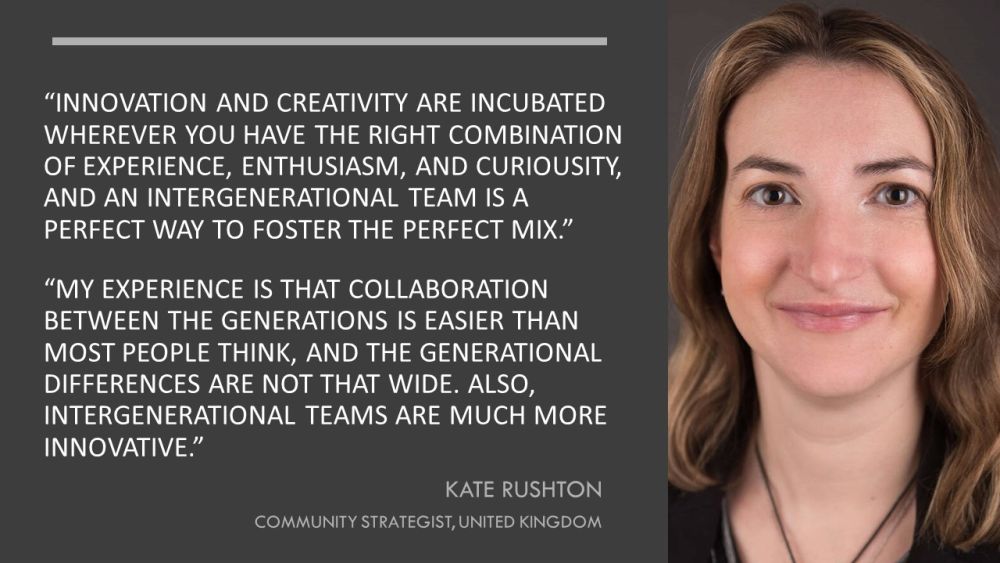
Generational Amnesia
REFLECTIONS BY BBC FUTURE’S RICHARD FISHER
“Can a generation be forgetful? It’s certainly true that older generations can fail to remember what it was to be young. With age, there comes a predictable derision of youth that seems to afflict almost every demographic cohort over the age of 35 years or so,” wrote Richard Fisher in a June 2021 essay for the BBC’s Wise Words series.
“There’s actually a scientific term for this: the ‘kids these days’ effect, which can be traced all the way back to the writing of the Ancient Greeks. One reason, the researchers say, is that people tend to forget that they themselves have changed over time, and so assume that the maturity, attitudes and behaviours of the young are also fixed.”
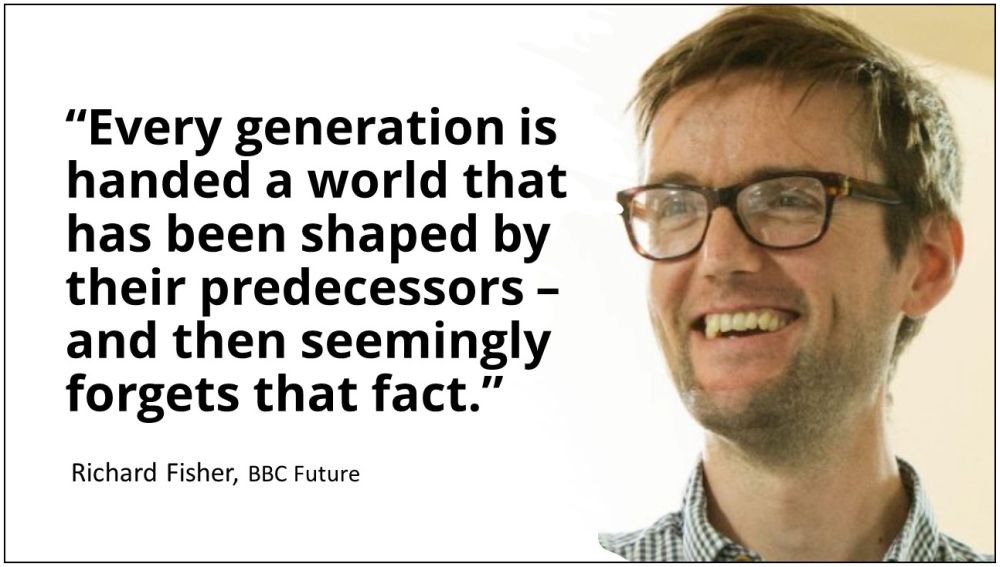
There are consequences when
“They Don’t Know What They Don’t Know”
“However, that’s not the only kind of forgetfulness that happens as the generations pass. There’s another type that is less obvious, called ‘generational amnesia’, which has profound effects on the way that we see the world. And unfortunately, all of us come to suffer from it no matter how young or old we are.”
“Every generation is handed a world that has been shaped by their predecessors – and then seemingly forgets that fact. One of the first times this particular type of generational amnesia was observed was back in the 1990s.”
“What this blindspot meant, Daniel Pauly argued in a short-but-influential paper, was that the scientists were failing to account fully for the slow creep of disappearing species, and each generation accepted the depleted ocean biodiversity they inherited as normal. He dubbed the effect ‘shifting baseline syndrome’.”
“Since then, the shifting baseline effect has been observed far more widely than the fisheries community – it takes place in any realm of society where a baseline creeps imperceptibly over generations.”
Intergenerational Collaboration: Pass Experience Forward
“As each generation ages, it may be tempting to lament a lack of awareness among the ‘kids these days’, just as the previous generation did when we were young. But when it comes to ensuring that our best memories of the world are not forgotten, it seems at least some of that energy might be better spent passing forward experience, rather than passing judgement,” concludes Richard Fisher.
To Learn More:
To read the complete article, download a copy of the article by Richard Fisher titled Generational amnesia: The memory loss that harms the planet.
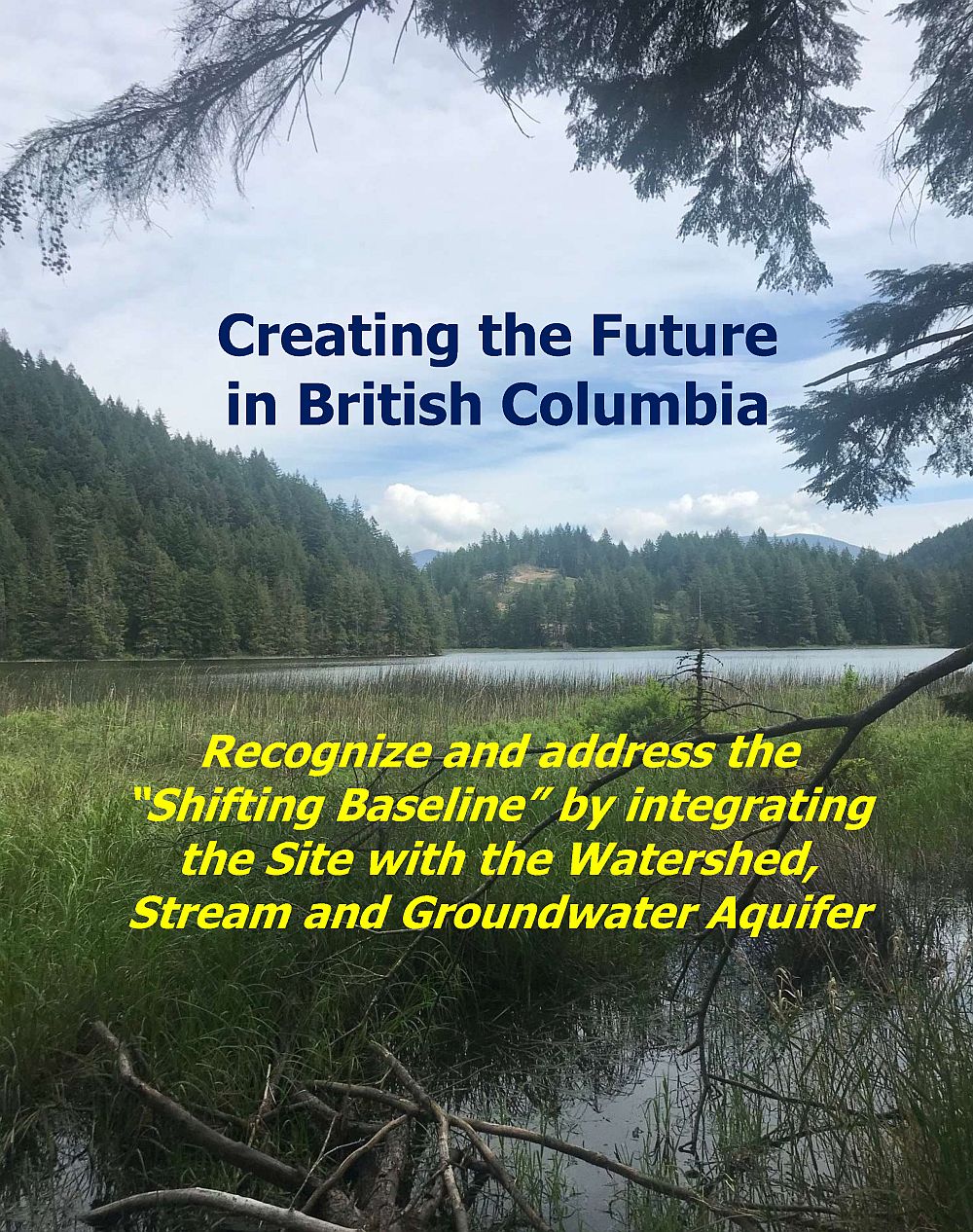
About the Partnership for Water Sustainability in BC
Incorporation of the Partnership for Water Sustainability in British Columbia as a not-for-profit society on November 19, 2010 was a milestone moment. Incorporation signified a bold leap forward. The Partnership evolved from a technical committee in the 1990s, to a “water roundtable” in the first decade of the 2000s, and then to a legal entity. The Partnership has its roots in government – local, provincial, federal.
The umbrella for Partnership initiatives and programs is the Water Sustainability Action Plan for British Columbia. In turn, the Action Plan is nested within Living Water Smart, British Columbia’s Water Plan. Released in 2008, Living Water Smart was the provincial government’s call to action, and to this day transcends governments.
Conceptual Framework for Inter-Generational Collaboration
Technical knowledge alone is not enough to resolve water challenges facing BC. Making things happen in the real world requires an appreciation and understanding of human behaviour, combined with a knowledge of how decisions are made. It takes a career to figure this out.
The Partnership has a primary goal, to build bridges of understanding and pass the baton from the past to the present and future. To achieve the goal, the Partnership is growing a network in the local government setting. This network embraces collaborative leadership and inter-generational collaboration.
Application of Experience, Knowledge and Wisdom
The Partnership believes that when each generation is receptive to accepting the inter-generational baton and embracing the wisdom that goes with it, the decisions of successive generations will benefit from and build upon the experience of those who went before them.
The Partnership leadership team brings experience, knowledge, and wisdom – a forceful combination to help collaborators reach their vision, mission, and goals for achieving water sustainability. When they are successful, the Partnership is successful.
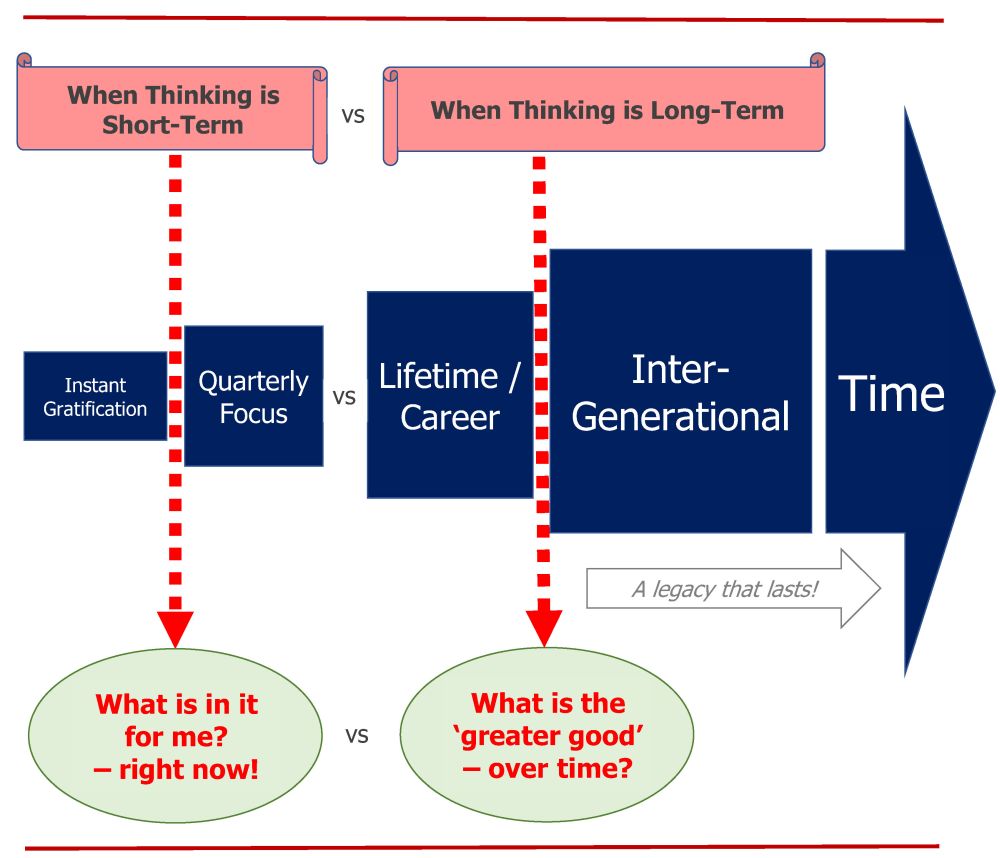
The Time Continuum graphic (above) conceptualizes the way of thinking that underpins the inter-generational mission of the Partnership for Water Sustainability. Influence choices. Capitalize on the REACHABLE and TEACHABLE MOMENTS to influence choices.
TO LEARN MORE, VISIT: https://waterbucket.ca/about-us/
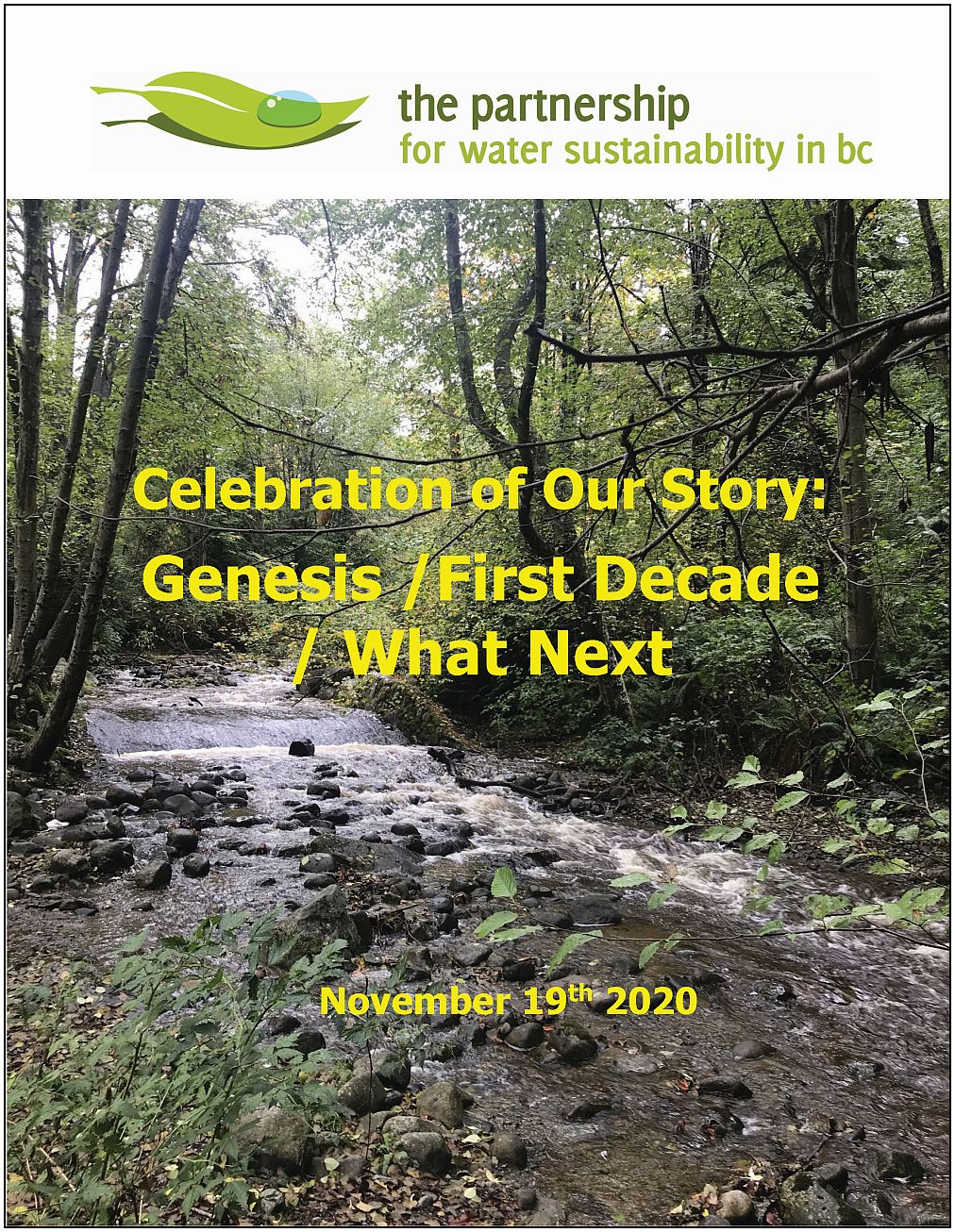
DOWNLOAD: https://waterbucket.ca/atp/wp-content/uploads/sites/9/2020/11/PWSBC_Story-of-First-Decade_Nov-2020.pdf


